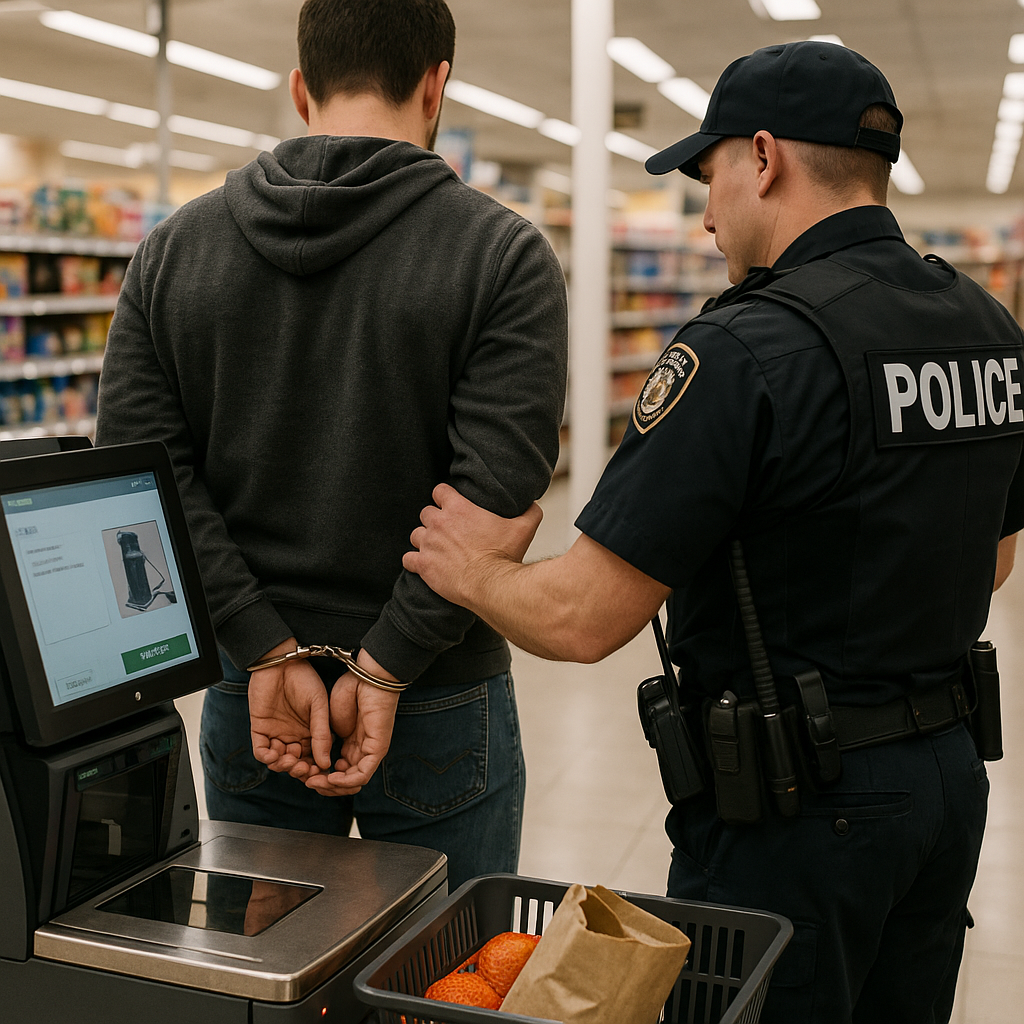Theft at Self Checkouts
Charges for Theft at Self Checkout Lines Are Becoming More Common

Theft at Self Checkouts
With businesses trying to cut costs and technology progressing, self checkouts at grocery stores and home improvement stores are becoming more and more common. While these are sometimes more convenient especially if you only have a few items, it also raises the possibility of theft for these stores.
While stores do usually have an employee watching in case there are any issues at the checkout, there are also cameras watching those who are checking out. There are an increasing number of thefts at the self checkouts around the area. Some of these cases are defensible, and some are very hard to defend when the videos are reviewed.
How is theft defined?
The Ohio revised code defines theft as:
“No person, with purpose to deprive the owner of property or services, shall knowingly obtain or exert control over either the property or services in any of the following ways:
(1) Without the consent of the owner or person authorized to give consent;
(2) Beyond the scope of the express or implied consent of the owner or person authorized to give consent;
(3) By deception;
(4) By threat;
(5) By intimidation.”
How does that apply to self checkouts?
The most important part of the definition is “knowingly”. A person must know that they are taking an item or exerting control over that item in one of the ways described above.
In the case of a person who simply forgot that there was an item under their cart that they did not scan, the questions that should be asked are:
- Did that person knowingly do that?
- Can the person be seen on camera looking at the item, and not scanning it on purpose?
- Did that person have 3 kids with them in the checkout line that they were trying to control while scanning items?
- Was the person on the phone and distracted by a phone call?
- Was the person looking around to make sure an employee did not see them when they didn’t scan the item?
These cases are all very fact dependent. What happens in one case may not apply to another case. The evidence needs to be examined before determining whether a person knowingly took an item without paying.
Some cases are more cut and dry. If a person has a cart full of 20 items, scans 1 item, and walks out with the rest of the items, that would tend to show that the person knew what they were doing when they walked out of the store.
Stores are very vigilant about theft in their stores since it affects their bottom line, so cameras are installed in several different angles to detect theft and keep an eye on theft. These cameras can be requested in the discovery process and looked over to determine what the circumstances of each particular case were.
What is the best practice at a self checkout counter?
The best practice when at a self checkout counter is to take your time and make sure that everything has been scanned. It is always best to take your time and make sure all items are scanned before leaving. However, sometimes people are in a hurry, or are forgetful. In any case, if you are charged with a theft at a self checkout you will likely need an attorney. A charge of petty theft, which is any amount under $1000 can carry a maximum of 180 days in jail and up to a $1000 fine. A mix up at a self checkout counter can have far ranging effects on a person’s life.
Having a local attorney with knowledge of the courts can be helpful to your case. Some courts will allow a diversion program for theft while others do not. Brian C. Morrissey, Attorney at Law is well versed in many of the local courts in Northwest Ohio and would be able to discuss the possibility of a diversion program for first time offenders.
If you or a loved one are looking at a theft charge and are looking for a free consultation, call Brian C. Morrissey, Attorney at Law LLC at 419-830-7441, fill out a contact form, or end an email to brian@brianmorrisseylaw.com. Consultations are free, and usually only take a few minutes over the phone. Consultations can also be done in person.


